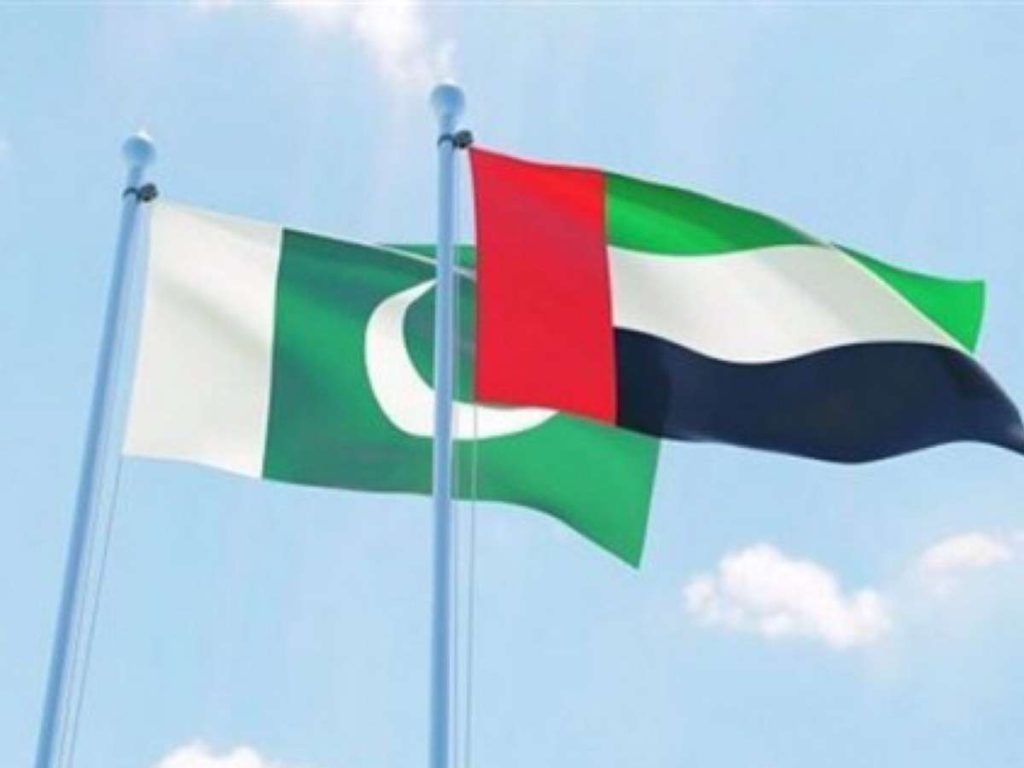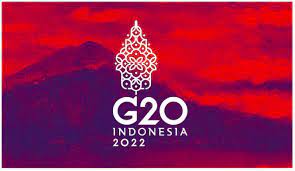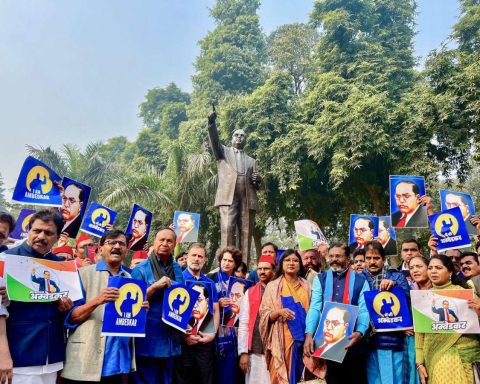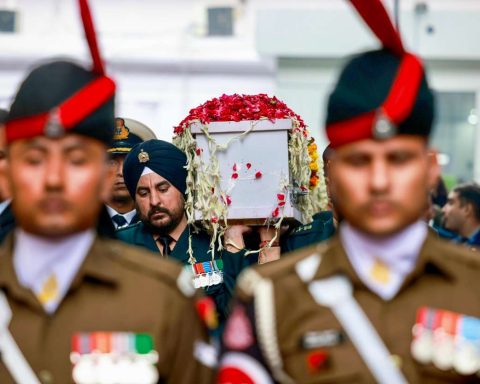India’s participation in the G20 process stems from the realisation that as a major developing economy India has a vital stake in the stability of the international economic and financial system. India has been actively involved in the G20 preparatory process both at the Sherpas Track and the Financial Track since its inception … writes Kaliph Anaz
India has embarked on the role of presidency of the G20 from December 1. In the coming months India will host 200 plus meetings and similar number of ‘engagement groups’. The 2021 summit was held in Italy. The 2022 summit is held in Bali, Indonesia. The current chair is held by India.
India’s participation in the G20 process stems from the realisation that as a major developing economy India has a vital stake in the stability of the international economic and financial system. India has been actively involved in the G20 preparatory process both at the Sherpas Track and the Financial Track since its inception.
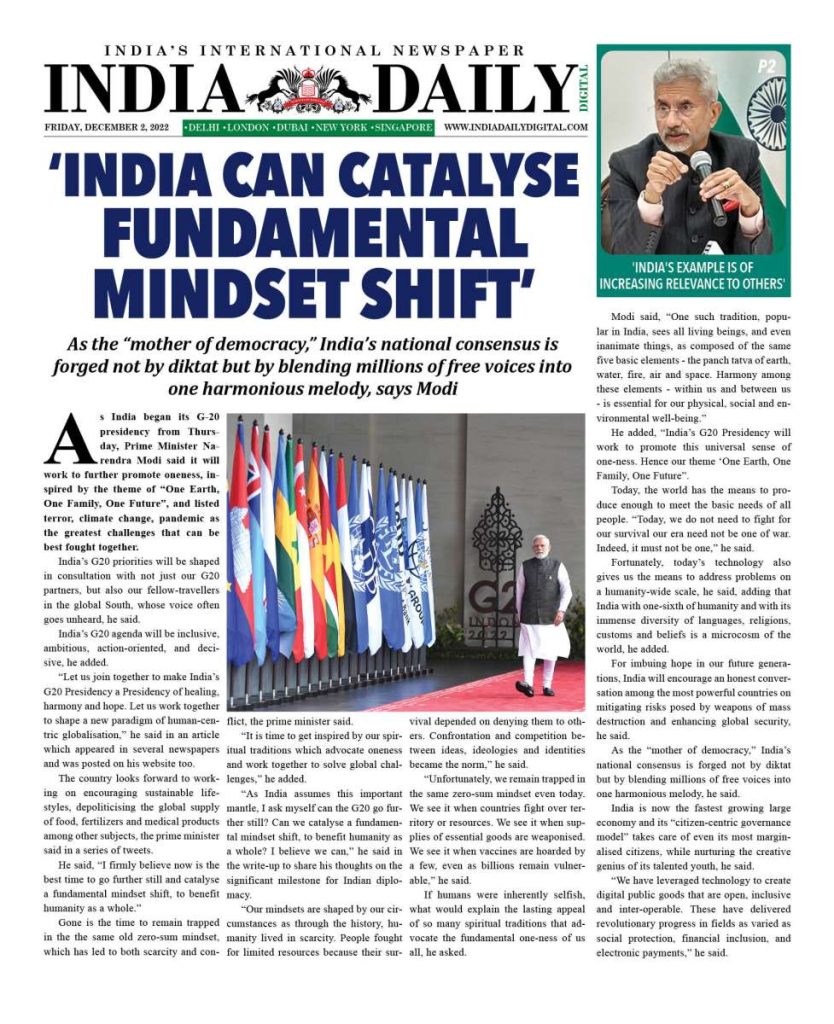
The Group of Twenty, or G20, is the premier forum for international cooperation on the most important aspects of the international economic and financial agenda. It brings together the world’s major advanced and emerging economies. The G20 comprises Argentina, Australia, Brazil, Canada, China, EU, France, Germany, India, Indonesia, Italy, Japan, Mexico, Russia, Saudi Arabia, South Africa, South Korea, Turkey, UK and USA. The G20 Countries together represent around 90% of global GDP, 80% of global trade, and two thirds of the world’s population. The objectives of the G20 are: a) Policy coordination between its members in order to achieve global economic stability, sustainable growth; b) To promote financial regulations that reduce risks and prevent future financial crises; and c) To create a new international financial architecture.
The G20 was created in response to both to the financial crises that arose in a number of emerging economies in the 1990s and to a growing recognition that some of these countries were not adequately represented in global economic discussion and governance. In December 1999, the Finance Ministers and Central Bank Governors of advanced and emerging countries of systemic importance met for the first time in Berlin, Germany, for an informal dialogue on key issues for global economic stability. Since then, Finance Ministers and Central Bank Governors have met annually. India hosted a meeting of G20 finance ministers and central bank governors in 2002. G20 was raised to the Summit level in 2008 to address the global financial and economic crisis of 2008.
The G-20 operates without a permanent secretariat or staff. The chair rotates annually among the members and is selected from a different regional grouping of countries. The chair is part of a revolving three-member management group of past, present and future chairs referred to as the Troika.
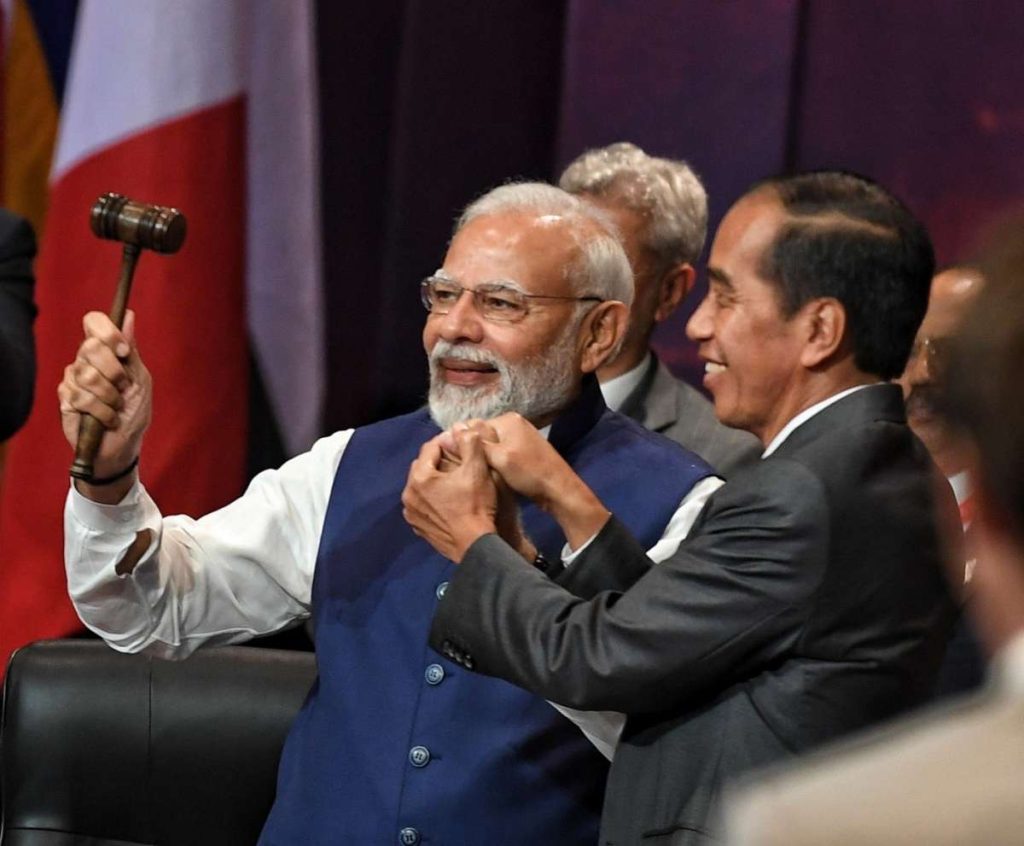
According to a paper by Observer Research Foundation, ‘G20 in 2023 Priorities for India’s Presidency’, the presidency will provide India with the opportunity to steer one of the more effective multilateral forums for global governance.
India’s presidency is momentous for several reasons. The critical challenges confronting humanity today are global in character, not confined by national boundaries, and require collective action. Solving these challenges demands multilateral initiatives.
“India can steer the empowerment of alternative international institutions of global governance that respond to the realities of the twenty-first century and direct global governance in the ‘decade of action’ to deliver the Sustainable Development Goals (SDGs),” stated the paper.
India has identified several priorities for its G20 presidency—inclusive, equitable and sustainable growth; LiFE (lifestyle for environment); women’s empowerment; digital public infrastructure and tech-enabled development in health, agriculture, education, commerce, skill-mapping, and culture and tourism; climate financing; circular economy; global food security; energy security; green hydrogen; disaster risk reduction and resilience; developmental cooperation; fight against economic crimes; and multilateral reforms, stated the ORF paper.
As the new G20 chair, India inherits the responsibility of steering collective action for restoring global economic and financial stability in the aftermath of the pandemic and the Russia-Ukraine war. The food and fuel crises triggered by the conflict are only worsening. India’s presidency will have to prioritise the formulation of a robust strategy for a resilient recovery of economic growth and recalibrate the action plan for achieving the 2030 SDG Agenda.
It is imperative for the G20 to concentrate efforts on developing a robust policy, and a regulatory, institutional and market ecosystem for accelerating the transition from the existing ‘brown’ economy to a more sustainable and low-carbon one. Global talks on the challenges of climate change have been dominated by concerns of climate change mitigation, with climate adaptation not being given the necessary attention. Similarly, climate finance flows to developing nations fall significantly short of their financial needs to undertake adequate and immediate climate action. India’s G20 presidency will be expected to champion the cause of developing nations in coping with the climate crisis, it added.

